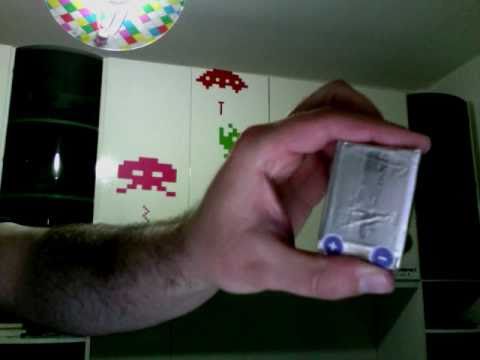Hi friends,
I wanna show this simple demo:
#include <math.h> // requires an Atmega168 chip
#define outpin 13 // audio out to speaker or amp
int ptime;
int k, x, dur, freq, t;
int i, j;
float ps; // variable for pow pitchShift routine
float noteval;
// note values for two octave scale
// divide them by powers of two to generate other octaves
float A = 14080;
float AS = 14917.2;
float B = 15804.3;
float C = 16744;
float CS = 17739.7;
float D = 18794.5;
float DS = 19912.1;
float E = 21096.2;
float F = 22350.6;
float FS = 23679.6;
float G = 25087.7;
float GS = 26579.5;
float A2 = 28160;
float A2S = 29834.5;
float B2 = 31608.5;
float C2 = 33488.1;
float C2S = 35479.4;
float D2 = 37589.1;
float D2S = 39824.3;
float E2 = 42192.3;
float F2 = 44701.2;
float F2S = 47359.3;
float G2 = 50175.4;
float G2S = 53159;
float A3 = 56320;
//octaves - corresponds to piano octaves
float oct8 = 4;
float oct7 = 8;
float oct6 = 16;
float oct5 = 32;
float oct4 = 64;
float oct3 = 128;
float oct2 = 256;
float oct1 = 512;
float oct0 = 1024;
//rhythm values
int wh = 1024;
int h = 512;
int dq = 448;
int q = 256;
int qt = 170;
int de = 192;
int e = 128;
int et = 85;
int dsx = 96;
int sx = 64;
int thx = 32;
// major scale just for demo, hack this
float happyBirthday[] = {
G, 0, G, A2, 0, 0,
G, 0, 0, C2, 0, 0,
B2, 0, 0, 0, 0, 0,
G, 0, G, A2, 0, 0,
G, 0, 0, D2, 0, 0,
C2, 0, 0, 0, 0, 0,
G, 0, G, G2, 0, 0,
E2, 0, 0, C2, 0, 0,
B2, 0, 0, A2, 0, 0,
F2, 0, F2, E2, 0, 0,
C2, 0, 0, D2, 0, 0,
C2, 0, 0, 0, 0, 0,
};
void setup() {
for(i= 0; i<=11; i++){
int value = HIGH;
while (digitalRead(0) == LOW) {
digitalWrite(10, value);
delay(100);
value = !value;
};
ps = (float)i / 12; // choose new transpose interval every loop
for(x= 0; x<=12*6; x++){
noteval = (happyBirthday[x] / oct4) * pow(2,ps); // transpose scale up 12 tones
// pow function generates transposition
// eliminate " * pow(2,ps) " to cut out transpose routine
dur = 150;
digitalWrite(10+(x&3), HIGH);
digitalWrite(10+((x+1)&3), LOW);
digitalWrite(10+((x+2)&3), LOW);
if ((int)noteval > 0) {
freqout((int)noteval, dur);
} else {
delay(100);
}
}
}
}
void freqout(int freq, int t) // freq in hz, t in ms
{
int hperiod; //calculate 1/2 period in us
long cycles, i;
pinMode(outpin, OUTPUT); // turn on output pin
hperiod = (500000 / freq) - 7; // subtract 7 us to make up for digitalWrite overhead
cycles = ((long)freq * (long)t) / 1000; // calculate cycles
for (i=0; i<= cycles; i++){ // play note for t ms
digitalWrite(outpin, HIGH);
delayMicroseconds(hperiod);
digitalWrite(outpin, LOW);
delayMicroseconds(hperiod - 1); // - 1 to make up for digitaWrite overhead
}
pinMode(outpin, INPUT); // shut off pin to avoid noise from other operations
}
void loop(){
}
Good bye
